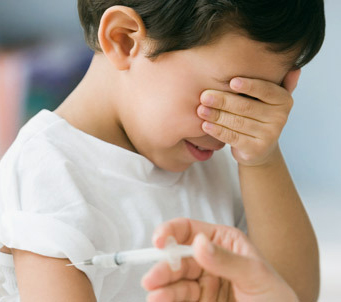
Un studiu desfasurat pe o durata de sase ani care si-a propus sa vada ce efecte are vaccinarea asupra dezvoltarii neurologice si comportamentului social al puilor unei specii de macaci, finantat partial de grupul anti-vaccinare si pentru persoanele cu autism SafeMinds, a concluzionat ca nu exista dovezi care sa cnfirme existenta unei astfel de legaturi, relateaza IFL Science.
Grupul a reactionat dupa aflarea rezultatelor, printr-o declaratie de presa, aratand ca sunt “ingrijorati despre schimbarile in protocolul studiului si analize, ceea ce ar fi putut duce la aparitia unor rezultate contradictorii”.
Contradictiile despre care se vorbeste in comunicat rezulta din faptul ca rezultatele preliminare, de la un studiu restrans, ar fi sustinut aceasta legatura, insa ele nu au fost confirmate de studiul extins.
Studiul a fost publicat in Proceedings of the National Academy of Sciences, si a implicat 79 de pui de maimuta.
The overwhelming majority of scientists agree: Vaccinations do not cause autism. Studyafter study has shown this, and even the original research used to peddle this myth was eventually retracted due to falsified data. But this hasn’t stopped many anti-vaccination groups from still trying to create data that says otherwise, often by commissioning studies that they hope will support their ideologies.
But for one group at least, this method of funding scientific studies to prove their point seems to have backfired. A six-year study looking into the effect that vaccinations have on the neurological development and social behavior of rhesus macaque infants, funded in part by the anti-vaccination and autism advocacy group SafeMinds, concluded that there was no evidence at all for such a link.
That didn’t stop the group from claiming the results didn’t change things. In a statement, they say that they had “concerns about changes in the study design protocol and analysis that may have led to these contradictory results.” The contradiction they are referring to is the fact that they were previously given preliminary results from a smaller trial, which purported to back up their position, before the study was expanded to include more subjects and underwent more rigorous standards that eventually found zero evidence.
The study, published in the Proceedings of the National Academy of Sciences, involved 79 infant monkeys in six groups. Two groups were given thimerosal-containing vaccines. Thimerosal is an antiseptic and antifungal agent that was frequently used in vaccinations until it was removed in the U.S from vaccines given to children in the 90s, and is frequently cited by anti-vaxxers as a cause for autism. The next two groups were given the MMR vaccine (also claimed to cause autism) without thimerosal, and the final two were given saline injections as a control.
The scientists then studied the behavior of the macaques as they interacted in social situations, looking for “autistic-like” behaviors. They found nothing. Some people diagnosed with autism have been observed to have smaller hippocampal cells and lower numbers of cells in the amygdala. After euthanizing the monkeys, the scientists conducted post-mortems on the animals’ brains, looking for these changes. They found no differences between the groups, stating that: “Our data do not support a role for thimerosal-containing vaccines in the neuropathology of autism spectrum disorder.”
Despite the researchers saying they gave their data to an independent statistical consultant, SafeMinds still want to see a reanalysis of the data. “We feel that embedded within these data sets there are animals that have potentially an adverse reaction to this vaccine schedule that would mirror what happens in human infants,” SafeMinds President Sallie Bernard told Newsweek. It seems that when you pay for the research yourself, the results can be harder to swallow.
[H/T: Newsweek]